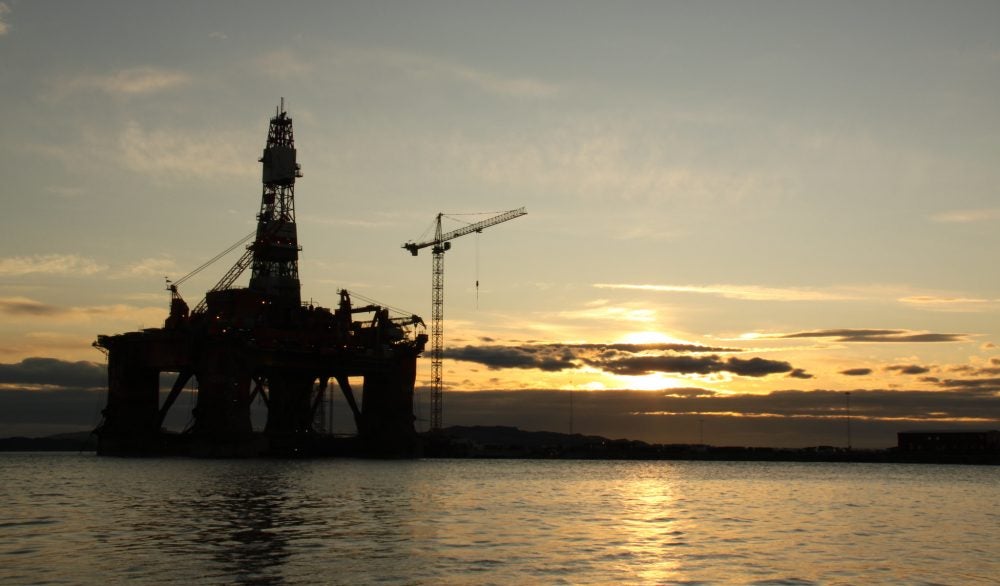
Covid-19 is Affecting Offshore Oil Costs and OPEC
The Covid-19 coronavirus pandemic is still in its early days, and it having a big impact offshore. How the world will recover depends on developing vaccines, containing the virus, and stopping re-infections after the first wave.
For the oil and gas industry, the coronavirus outbreak has triggered a double problem; the drop in oil’s value and the resulting price war. This week, analysts at Rystad Energy suggested up to 20% of the offshore workforce could lose their jobs, and staffing cuts may remain in place until mid-2021.

Discover B2B Marketing That Performs
Combine business intelligence and editorial excellence to reach engaged professionals across 36 leading media platforms.
Analysts agree that the industry will need to make savings to keep production profitable. Brent crude oil currently sells for prices in the mid-$20s and several operators are targeting this as the threshold for projects costs.
Breakeven prices, the oil price needed for projects to profit, have fallen drastically since the industry’s 2014 troubles. In a presentation by energy consultants Wood Mackenzie on Thursday, analysts discussed companies’ targets of bringing down the cost of producing oil.
Principal analyst Rob Morris said: “In the last couple of years, operators have had a breakeven rate of $50 per barrel. You’ve seen project breakevens come down hugely from five years ago, when many were above $100 a barrel, and now most are around $50 a barrel, and more than half of them are below that. But almost none of them work at below $30 per barrel.”
Covid-19: increasing technology offshore?
Companies previously cut costs using digitalisation and service providers believe the current wave of cuts will mean more technology offshore.

US Tariffs are shifting - will you react or anticipate?
Don’t let policy changes catch you off guard. Stay proactive with real-time data and expert analysis.
By GlobalDataEngineering and technology services company Lloyd’s Register managing director of digital products Tim Bisley said: “Change is inevitable, the question is really the rate and pace of that change. In the wake of the current situation that we all find ourselves in, energy firms will be looking closely at their existing plans around digitisation and how to accelerate some of their efforts.
“Investments in technology platforms that support the efficient management of plants, existing operations as well as remote working will inevitably attract attention. Technologies related to asset performance management, subsurface and exploration software will set the bar for the way the industry may operate once the current pandemic has passed.”
However, some believe the demand for oil after Covid-19 will give the offshore industry a boost. Oil economist and lecturer at ESCP Business School Dr Mamdouh G Salameh said: “Once the outbreak is controlled, the global economy, particularly China’s, will behave like somebody who has been starved of food while in quarantine.
“Once allowed to eat, his appetite will be rapacious and that will exactly be the same with the global oil demand which will probably double or perhaps triple oil imports to compensate for lost demand. China’s oil imports in 2019 broke all previous records and they will do the same after the outbreak is controlled.
“Moreover, oil prices could be projected to recover all their recent losses and could even hit $60 a barrel in the second half of this year.”
The fate of OPEC
Even before the coronavirus pandemic, some analysts feared overproduction would hurt the oil prices in 2020. When Covid-19 cut demand in China, the offshore industry began to lose money.
However, the biggest fall this year came when the Organisation of the Petroleum Exporting Countries (OPEC) and Russia decided not to slow their production rates. Because of this, both have lost out on billions of dollars and damaged relations with each other.
Salameh said: “There is no doubt that OPEC has been weakened by the slide of oil prices and also by Saudi Arabia’s initiating a price war against Russia for not agreeing deeper production cuts.
“However, OPEC has managed to survived major crises since its foundation 60 years ago including the Iraq-Kuwait war. I am convinced that it will also survive the coronavirus outbreak. OPEC is a pillar of the global oil market contributing to the stability of oil prices.
“Saudi Arabia could never win a price war with Russia. Russia’s economy could live with an oil price of $25 a barrel for years compared with $91 for Saudi Arabia according to the International Monetary Fund (IMF).
“If Saudi Arabia continues with the price war, its budget deficit will mushroom to $116bn this year, the biggest in its history and its economy will go bankrupt in two years.
“The global economy will be the biggest loser and within the global economy Saudi Arabia and the US shale oil industry will be the main casualties.”





